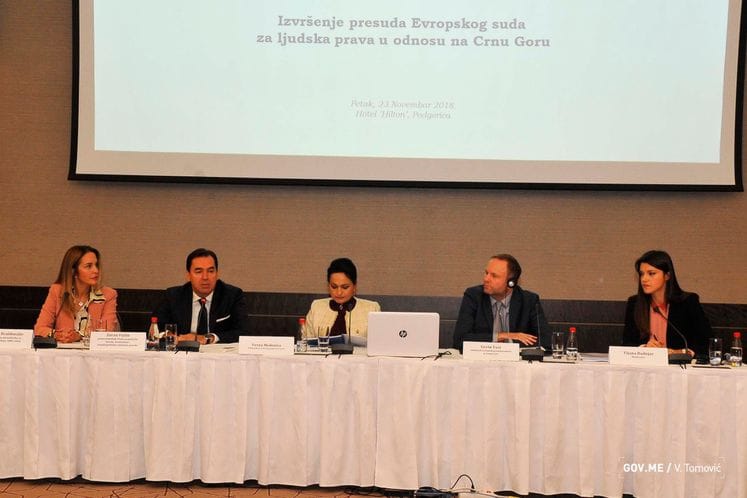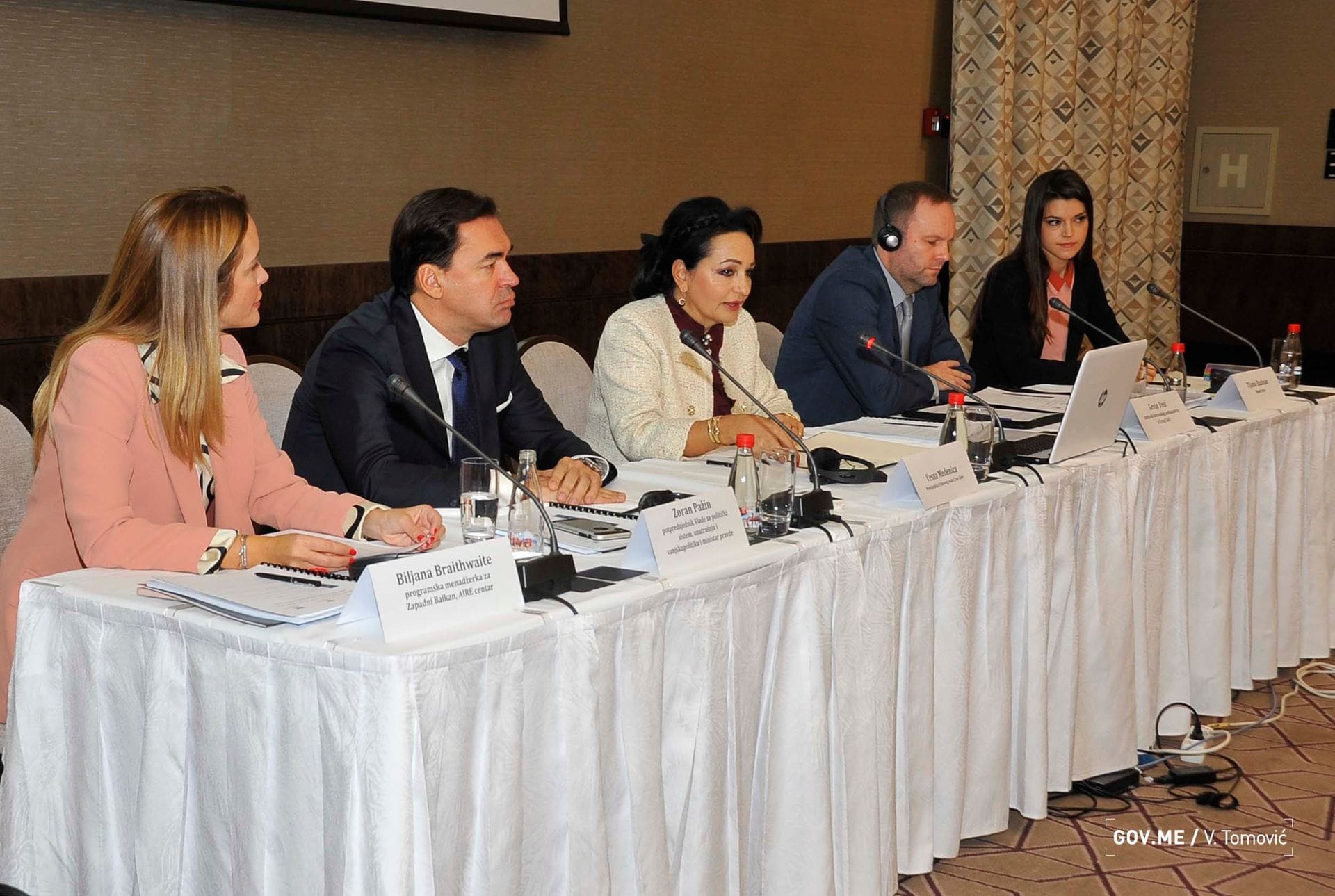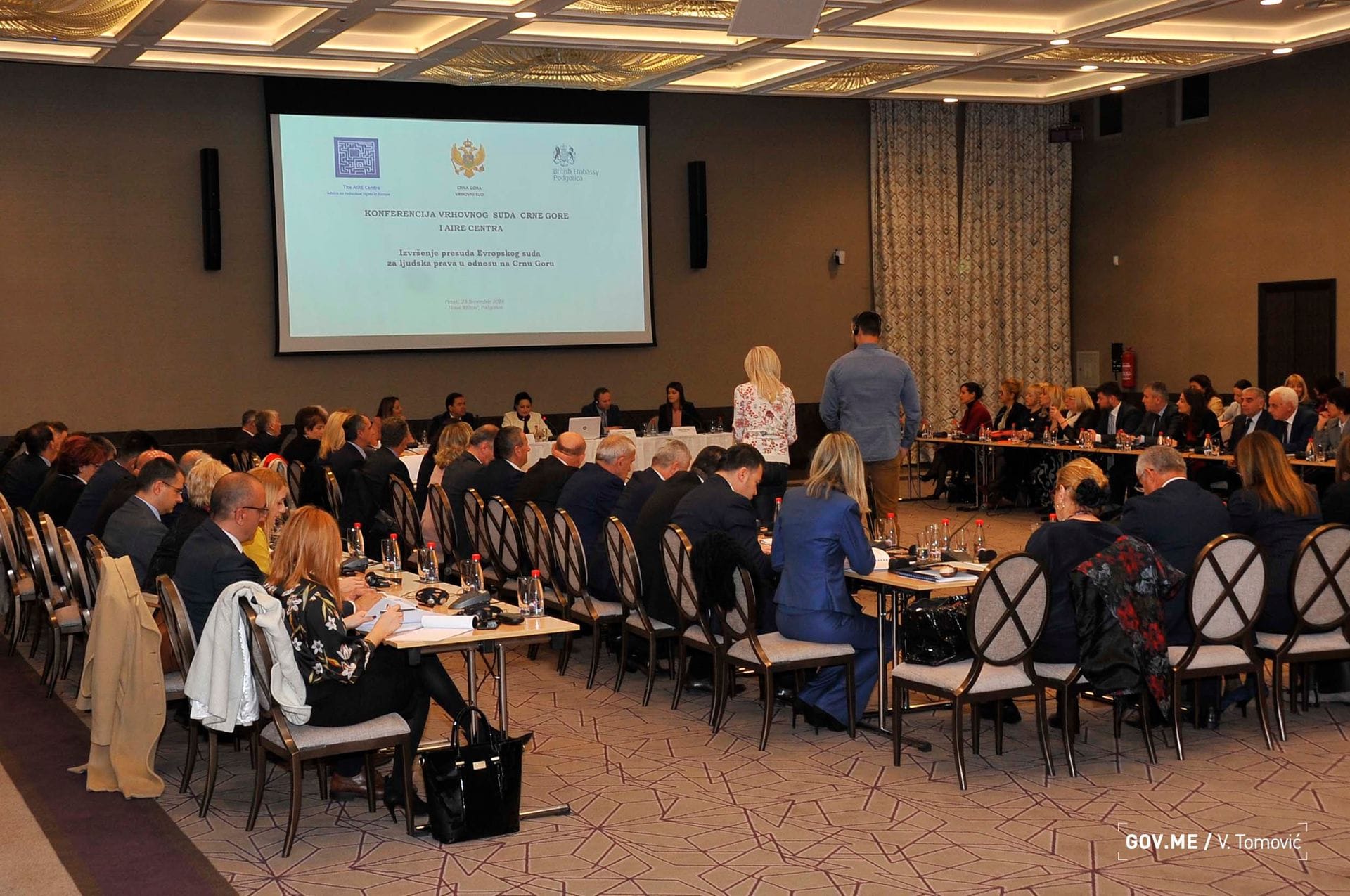- Government of Montenegro
DPM Pažin: European Court's judgments are always f...
Please note: The page below represents the archived content relating to the previous Government of Montenegro. Some of the information might be inaccurate or outdated.
Archive
DPM Pažin: European Court's judgments are always for benefit of Montenegro

Published on: Nov 23, 2018 • 9:14 PM Author: PR Service


Podgorica, Montenegro (23 November 2018) -- The judgments of the European Court of Human Rights in relation to Montenegro represent a true treasury of legal knowledge that guides us and illuminates the directions in which the Montenegrin legal system should be developed, Deputy Prime Minister Zoran Pažin noted.
All the European Court of Human Rights's judgments that found violations of some of human rights and freedoms are for the benefit of Montenegro, because they help us recognise our own weaknesses within our legal system and remove these weaknesses and develop our legal system for the benefit of our citizens, DPM Pažin emphasised.
In his keynote address at a conference sponsored by the Supreme Court of Montenegro and the London-based AIRE Centre on the enforcement of judgments of the European Court of Human Rights in relation to Montenegro, which took place in Podgorica earlier today, Deputy Prime Minister Pažin said that a broad social consensus on the need to accept and respect human rights and freedoms is a necessary condition for European perspective of Montenegro.
He pointed out that the values of the Council of Europe, the oldest pan-European international organisation, such as genuine democracy, human rights and freedom and the rule of law, are actually an expression of the common European identity of the 47 member states of the Council of Europe.
DPM Pažin said that the right of an individual to apply before the European Court for the protection of their human rights and freedoms, established by Article 34 of the European Convention on Human Rights, has introduced a revolutionary novelty into international relations and international law, since the citizen, the individual, for the first time became a subject of international law. "Not only is a citizen, an individual, a subject of international law, but they have become equal to the richest of the states, to the strongest of the governments."
He noted that, in this context, the Analysis of the Judgments of the European Court of Human Rights in relation to Montenegro, developed by the Supreme Court of Montenegro and the Office of the Representatives of Montenegro before the European Court of Human Rights, is a precious document. "I take the opportunity to thank and congratulate the authors on their devoted work in which they demonstrated not only a good knowledge of the practice of the European Court but also of national law. We must not forget that only good knowledge of national law enables good grasping of international legal standards, not vice versa," the Deputy Prime Minister concluded.
OFFICE OF THE DEPUTY PRIME MINISTER
Related articles:
DPM Bečić congratulates Montenegro's youth football team on Under-19 EURO qualification Mar 25, 2025
Presidents of northern municipalities: The Emirates and Alabbar are welcome in Montenegro Mar 24, 2025
Statement by Deputy Prime Minister Aleksa Bećić Mar 24, 2025
Is this page useful?
